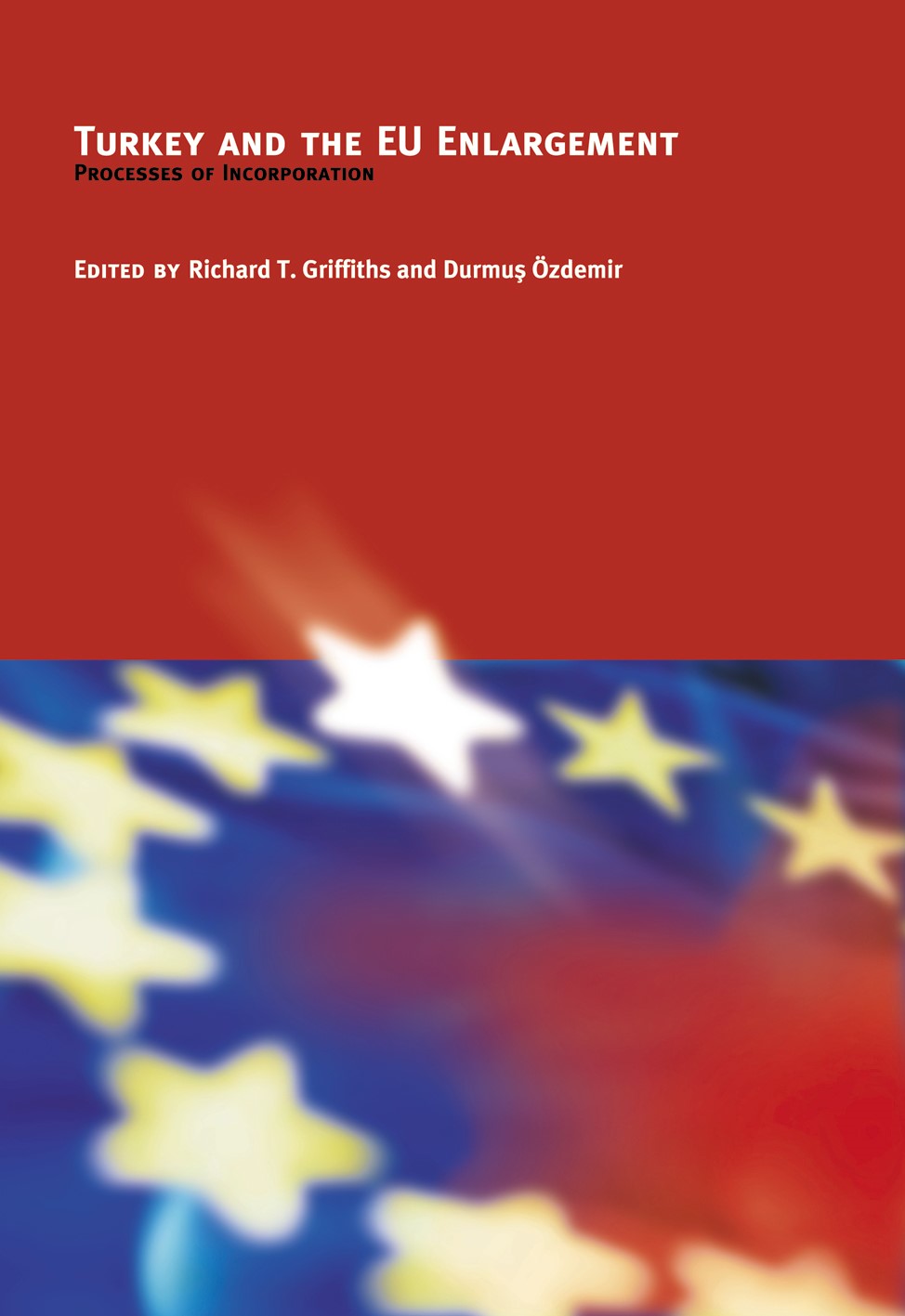
Turkey and the EU Enlargement: Processes of Incorporation
The enlargement of the EU towards Turkey has been one of the most hotly debated enlargements in the EU’s history. It is therefore most important to obtain a good overview of the most burning issues and underlying questions. The decision to commence negotiations will be taken on the basis of various criteria, including Turkey’s progress towards satisfying the so-called Copenhagen criteria. However, other arguments will also doubtless come into play, including the assessments of the costs and benefits of Turkish membership and whether Turkey is indeed sufficiently ‘European’. This book analyses the pros and cons of Turkish membership on various issues that play a central part in the on-going debate._x000D_
_x000D_
One unique element of the book is that it represents the views of Turkish academics as well as those from the Netherlands and Germany. Although the tenor of this publication towards the question of Turkish membership is overwhelmingly positive, several authors do express reservations and some worry whether the arguments in Turkey’s support are sufficient to sway the decision in the country’s favour._x000D_
_x000D_
The information contained in the book will continue to inform discussions on Turkey’s relations with the EU long after the immediate decision on Turkish membership is taken, under the Dutch presidency.
Introduction
Richard T. Griffiths - Durmuş Özdemir
PART I A General History of Turkey-EU Relations and the Current Societal Issues
Wendy Asbeek Brusse & Richard T. Griffiths
CHAPTER 1 Good Intentions and Hidden Motives. Turkey-EU Relations in an Historical Perspective
1.1. Introduction
1.2. European Player and Western Ally, 1923-1972
1.3. Mutual Misunderstanding and Impotence, 1972-1987
1.4. The Road to Formal Candidate-Membership, 1987-2004
Ayten Görgün
CHAPTER 2 What Turks think of Europe, Opinions on the European Union in Turkey
2.1. Introduction
2.2. The EU as a Door of Hope
2.3. The EU: Trust Issues
2.4. The EU: A Puzzle
2.5. Conclusion
Ayhan Kaya
CHAPTER 3 Recoding Europeanness: A Comparative Study on German-Turks and French-Turks
3.1. Introduction
3.2. Euro-Turks: A Bridge or a Breach between Turkey and the European Union?
3.3. Europeanness: A Constant Process of Being and Becoming
3.4. Euro-Turks’ Perspectives on the European Union
3.5. Building New Identities and Bridges
3.6. Conclusion
W. Asbeek Brusse & J. Schoonenboom
CHAPTER 4 The European Union, Religion and Turkish Islam
4.1. Introduction
4.2. Religion in the European Union and the Member States
4.3. The Secular State: Historical Foundations
4.4. The Turkish State and Political Islam
4.5. State-Islam and Freedom of Religion
4.6. Conclusion
PART II Turkish Reforms
Serap Yazıcı
CHAPTER 5 The Impact of the EU on the Liberalization and Democratization Process in Turkey
5.1. Introduction
5.2. The Constitutional Reforms of 1995, 2001 and 2004
The Constitutional Reforms of 1995
The Constitutional Reforms of 2001 and 2004
Amendments for Liberalization and Democratization
5.3. Democratization Packages for Liberalization, Democratization and Civilianization
5.4. Conclusion
Uğur Emek
CHAPTER 6 Understanding Structural Reforms in Turkey
6.1. Introduction
6.2. Characteristics of Political Culture in Turkey
6.3. The Chosen Mode of Capital Accumulation in Turkey
6.4 The Changing Role of the State in Economic Development
6.5. Unchanging Features of the Turkish Economy
6.5.1. Uncertainty in the Decision-Making Process
6.5.2. (Un)stable Economy
6.5.3. Rent Creating/Seeking Activities
6.6. The Performance of Main Economic Actors
6.6.1 Public Sector
6.6.2. The Business Environment
6.6.3. Working Life
6.7. What Turkey Needs: The State that Manages
6.7.1. Public Sector Governance
6.7.2. Corporate Sector Governance
6.7.3. Financial System Governance
6.8. Concluding Remarks: The Future of Structural Reforms
Arjan M. Lejour
CHAPTER 7 Turkish EU Membership: Institutional Reforms Determine the Size of the Economic Benefits!
7.1. Introduction
7.2. The Turkish Economy
7.3. Trade Relations
7.4. Accession to the Internal Market
7.5. Improving Turkish Institutions
7.6. Free Movement of Labour
7.7. Conclusions
PART III Economic Implications of Turkish-EU Membership
Durmuş Özdemir
CHAPTER 8 Implications of Economic Integration and a Case for Peace Dividend
8.1. Introduction
8.2. Concepts of Integration
8.3. Traditional Measures of the Effects of Economic Integration between Turkey and EU
8.4. Peace Dividend and Long-Term Stability Effects
8.5 Concluding Remarks
Richard T. Griffiths
CHAPTER 9 Turkey and EU Finances
9.1. Introduction
9.2. The Income of the EU
9.3. The Expenditure of the EU
9.4. A Tentative Balance
Harald Grethe
CHAPTER 10 The Integration of Agricultural Markets from a Turkish Perspective
10.1. Introduction
10.2. Characteristics of the Agricultural Sector in Turkey and the EU
10.3. Options for Agricultural Market and Policy Integration
10.3.1. Inclusion of Agricultural Products in the Customs Union between Turkey and the EU
10.3.2. Full Membership of Turkey in the EU
10.4. Conclusions
Serhat Güvenç - Oya Memişoğlu
CHAPTER 11 Turkey and Regional Security
11.1. Introduction
11.2. Security: Through Soft Power, Hard Power or Both?
11.3. The Regional Context
11.4. A Security Provider in the Making?
11.5. Conclusion
Contributors
Index
